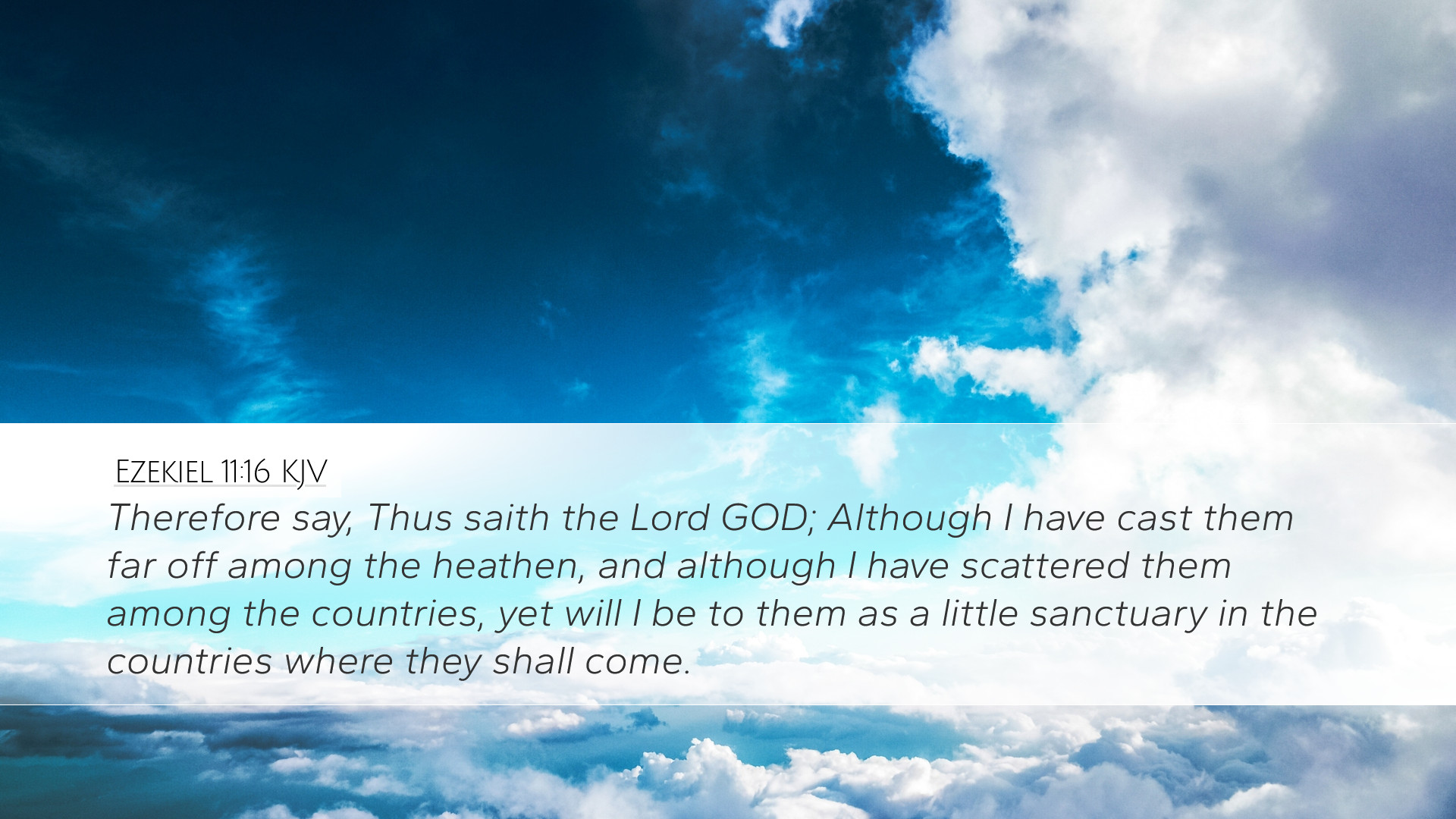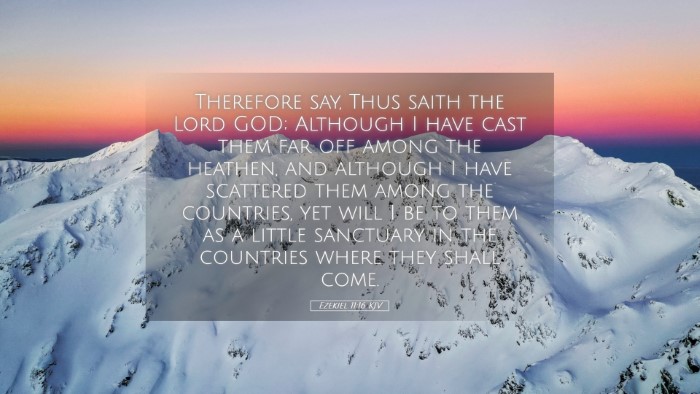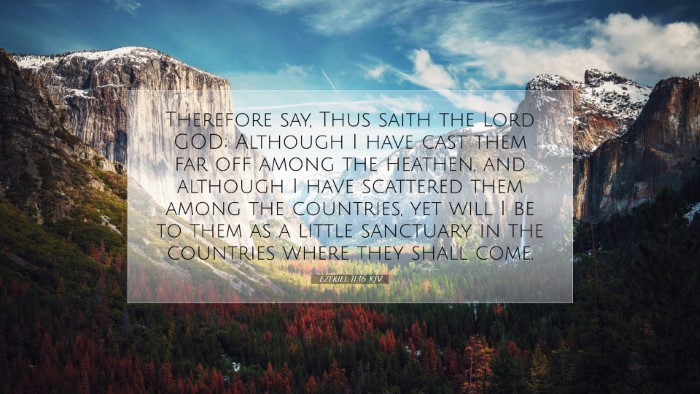Bible Commentary on Ezekiel 11:16
Ezekiel 11:16 states: “Therefore say, Thus saith the Lord God; Although I have cast them far off among the heathen, and although I have scattered them among the countries, yet will I be to them as a little sanctuary in the countries where they shall come.”
This verse encapsulates a profound theological statement regarding God's relationship with His people, particularly in times of exile and estrangement. It reflects God’s promise of presence and restoration despite the apparent hopelessness of their situation.
Divine Assurance Amidst Exile
The context of Ezekiel's prophecy is critical to understanding this verse. The Israelites were in Babylonian captivity, feeling abandoned and disconnected from their homeland and their God. Matthew Henry emphasizes that despite their disobedience and the consequences that followed, God reassures them of His abiding presence.
Albert Barnes focuses on the terms used in this verse: “scattered” and “sanctuary.” He notes that God's holiness and the sanctuary theme underscore His commitment to being with His people even in their dispersion. The imagery of a "little sanctuary" indicates that no matter where the Israelites are, they can access God's presence, suggesting His omnipresence and faithfulness.
Theological Significance of Scattering
The act of scattering is seen as both a punishment and a means for divine restoration. Adam Clarke observes that the scattering served a dual purpose: it was a lamentable result of their sin, but it also provided an opportunity for God to demonstrate His mercy and love.
-
Reminders of Unity: Though scattered, they remained one people under the covenant with God.
-
Preparations for Restoration: The scattering sets the stage for a future gathering, as God promises to be a sanctuary.
Symbolism of the "Little Sanctuary"
The concept of a “little sanctuary” merits deep examination. Henry points out that the size “little” does not reflect God's capacity but rather indicates that wherever two or three gather in His name, there He is. This concept provides comfort, suggesting that even in foreign lands, God’s people can worship and find refuge.
Clarke elaborates on this by suggesting that a “little sanctuary” can be a metaphor for the church. It implies that in every place believers may find a refuge in God through worship, prayer, and community. The church becomes a manifestation of God's presence, echoing the same promises provided to the Israelites.
Application for Today’s Believers
The implications of Ezekiel 11:16 extend to modern believers who may feel distant from their faith or community. The promise that God will be a sanctuary emphasizes that God’s grace persists beyond our failures.
-
Comfort in Distress: In times of personal exile—whether from sin, loss, or isolation—believers can rely on God's eternal presence.
-
Encouragement for the Dispersed: For Christians facing cultural exile in secular societies, this verse reassures that God is with them amidst their struggles.
Hope for Restoration
This verse ultimately points towards hope—a theme prevalent throughout the book of Ezekiel. Barnes notes that the promise of returning is not just physical but spiritual. God is preparing His people for a time when He will restore their fortunes and their relationship with Him.
Henry emphasizes that hope should be the guiding principle for those undergoing trials. The assurance of God's presence reassures believers that their current state is not their final destiny.
Conclusion
Ezekiel 11:16 serves as a pivotal verse affirming God's enduring presence and faithfulness. Despite periods of exile and separation, it reiterates God’s commitment to His people to be a “little sanctuary.” This promise resonates today with believers navigating their own forms of exile and encourages them to seek refuge in the everlasting arms of their Lord.
In summary, amid trials, God’s people can find solace in His promise: no distance can sever the bond between Creator and creation, and wherever believers are, God is there to shelter them under His wings.


